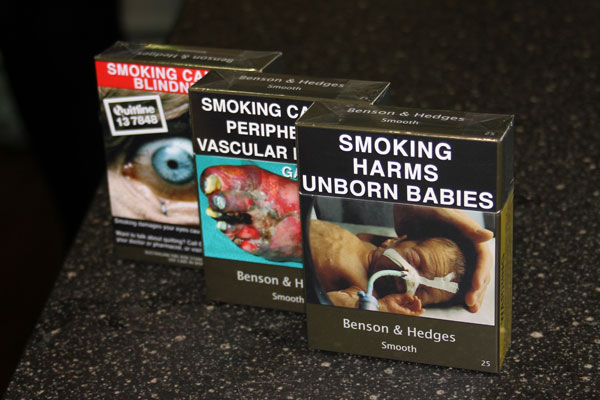US-based Action on Smoking and Health (ASH) has welcomed Thursday’s decision by the World Trade Organization (WTO) in favor of Australia’s regulations on standardized tobacco-product packaging.
‘The tobacco industry has long used litigation as a weapon against meaningful public health measures,’ ASH said. ‘Australia deserves credit for standing up to the barrage of lawsuits that followed its implementation of plain packaging, including a domestic constitutional challenge, a direct trade challenge under an investment agreement, and the WTO challenge launched by four countries on behalf of the industry (Ukraine, the original litigant, eventually dropped its challenge).’
ASH said that the WTO decision had not come as a surprise for the tobacco industry. ‘Their litigation strategy is not focused on winning but on imposing economic penalties on countries that try to push the envelope on tobacco control, in the hopes that other governments will shy away, a strategy often called “regulatory chill”,’ it said. ‘Unfortunately, the tactic is all too often successful. Several countries delayed or ended plain packaging efforts as a result of the Australia case.’
ASH went on to say that there existed an irreconcilable conflict of interest between industry profits and public health.
‘In addition to prioritizing health over profits, this WTO decision demonstrates the rights of governments to legislate in the public interest,’ it said. ‘International trade law has long been skewed in favor of corporate rights. Today the WTO panel demonstrated its understanding that governments have a duty to their citizens, not foreign investors.’
ASH said that Australia should not have had to litigate these trade cases. ‘Corporate litigation rights are included in many trade agreements as a backstop for cases where domestic rule of law is weak,’ it said. ‘This is certainly not true for Australia, where Big Tobacco’s case was heard fairly.
‘Action on Smoking and Health will continue to work diligently for exclusions in trade agreements that protect tobacco control regulations from challenges, as we did in the draft Trans-Pacific Partnership Agreement.’
Packs finding welcomed











